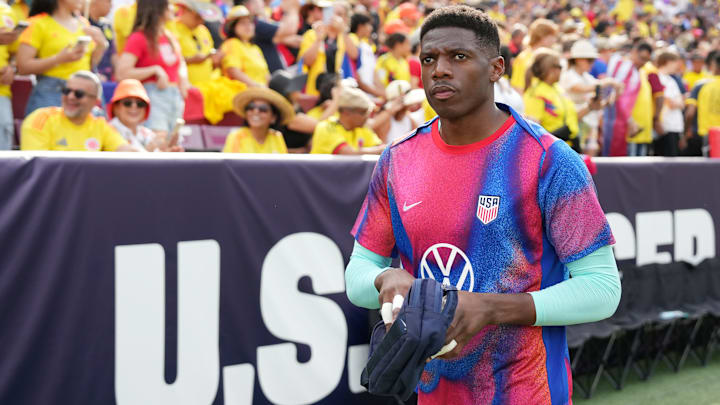The latest match of the United States Men's National Soccer Team (USMNT) brought a bitter surprise. For the first time in 240 games, since the 2009 Gold Cup, the team conceded five goals in a single match. This shocking result raises not only tactical concerns but also questions about the future.
The 2009 match against Mexico in the Gold Cup final was the last time the United States faced such a humiliating setback. That match, which ended with a score of 5-0 in favor of the Mexicans, was a turning point for the American team, which has since sought to strengthen itself and avoid such defensive exposure. Now, in 2024, we see again a vulnerable defense reminiscent of the difficult times of the past. What does this indicate for a nation that heavily invests in sports and seeks to establish itself as a powerhouse in soccer?
Follow MLS Multiplex on X (Twitter).
The historical perspective adds a layer of complexity to understanding this result. Before 2009, the last occasion when the USMNT conceded five goals in a single game was during the 1990 World Cup, in a match against then Czechoslovakia. This event, more than three decades ago, symbolized the immaturity of American soccer on the international stage. Therefore, the repetition of such an adverse scoreline in 2024 can be seen as a concerning regression.
The American team has evolved significantly over the years, with players competing in top European leagues and a talent development structure that rivals many traditional soccer nations. A detailed analysis of defensive flaws reveals issues that go beyond individual player performance. There's a clear tactical and strategic mismatch, evidenced by the inability to adjust the defense against an organized and persistent attack.
Investment in infrastructure and youth development programs has been substantial, but on-field results need to reflect that dedication.
The discussion about the future of the USMNT cannot ignore the role of coaching leadership. The choice of coaches and the long-term vision for the team are crucial. With a history of decisions that don't always prioritize continuity and cohesion, the American federation needs to reassess its strategies. The pressure for immediate results must be balanced with the need to build a solid and sustainable foundation.
For the fans, frustration is understandable. The expectation for better performance, especially after years of growth and professionalization, makes such a resounding defeat difficult to accept. It's important to maintain perspective. Losses like this can serve as catalysts for necessary changes and prompt deep reflection on the team's methods and goals.
The USMNT has the responsibility to represent a nation that values competitiveness and excellence. This defeat may be a step back, but it should be seen as an opportunity to reassess and adjust course. The team's resilience and capacity for learning will be tested in the upcoming challenges.
